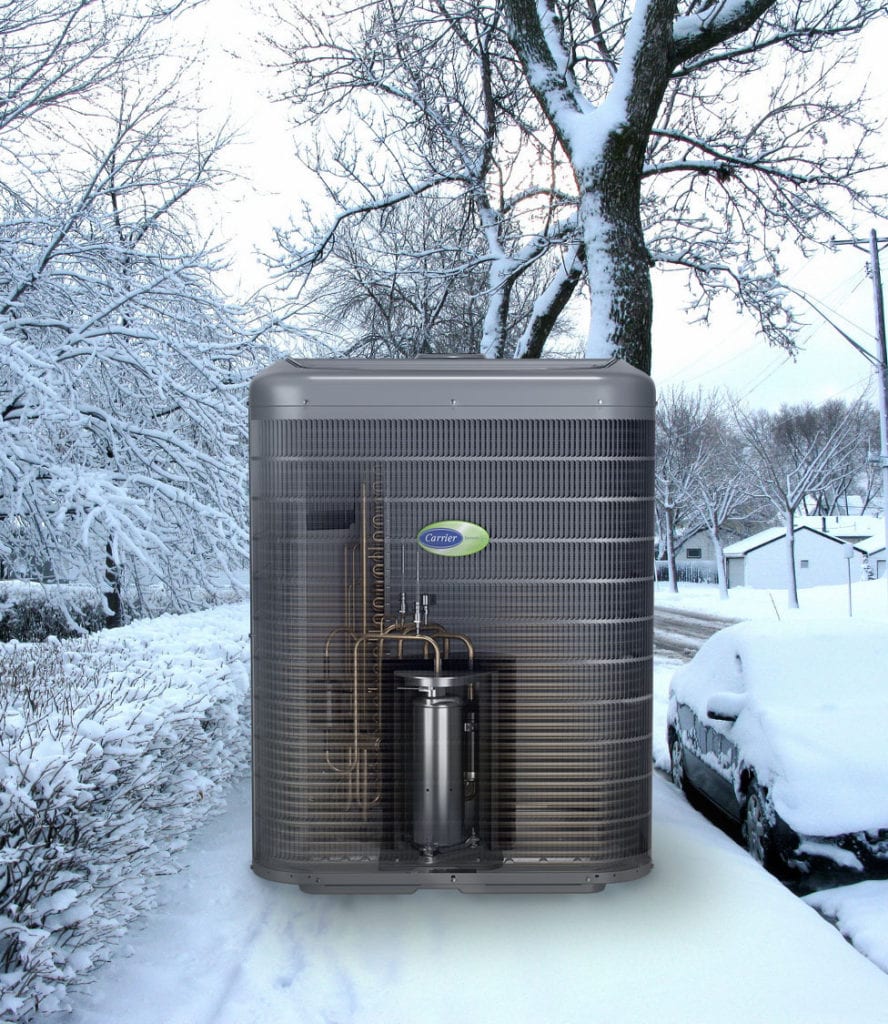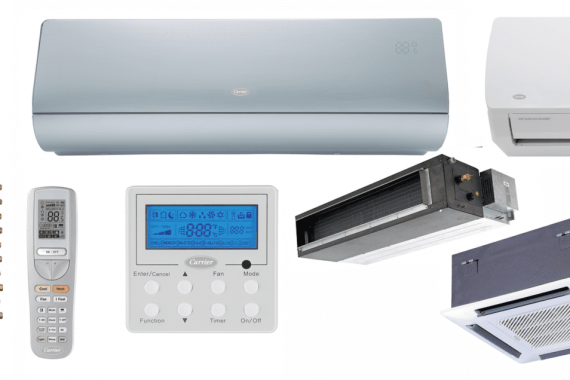
Hybrid Heat is a combination High-Efficiency Furnace and Heat Pump Unit, two of the most energy-efficient systems in home heating technology. In other words, Hybrid Heating System is the synergy between the most efficient natural gas fuel heating system (e.g. high-efficiency furnaces) and heat pump units.
Hybrid Heat is a dual-fuel heating system, which reacts to environment changing temperatures and automatically adjusts to the most efficient energy saving method available to heat or cool a home.
In a Hybrid Heating System, a cold climate air-source heat pump is backed up by an auxiliary high-efficiency combustion furnace. When temperatures plunge below a certain level, the combustion furnace kicks in, keeping your house warm in even the coldest weather.
What are Cold Climate Air Source Heat Pump Units?
This is a highly energy efficient heating and cooling system which does not need a fossil fuel like natural gas to operate. The Cold Climate Air Source Heat Pump Units consume electricity however in heating mode they generate heat more than 3 times of electricity they consume. In cooling mode they are also much more efficient than regular air conditioning units.
Major Benefits of Air-Source Heat Pumps

Efficiency
At 10°C, the coefficient of performance (COP) of air-source heat pumps is typically about 3.3. This means that 3.3 kilowatt hours (kWh) of heat are transferred for every kWh of electricity supplied to the heat pump. At –8.3°C, the COP is typically 2.3.
The COP decreases with temperature because it is more difficult to extract heat from cooler air.
Air-source heat pumps will operate with heating seasonal performance factors (HSPFs) that vary from 6.7 to 10.0, depending on their location in Canada and their rated performance. Natural Resource Canada has identified three regions where it would be viable to use air-source heat pumps. The first region is the West Coast, characterized as mild with high heat pump performance. The second region – southern Ontario, Nova Scotia and interior British Columbia – is colder, and requires a heat pump with higher performance. The third region includes colder regions in British Columbia, Alberta, Ontario, Quebec, New Brunswick, Nova Scotia, Prince Edward Island, and Newfoundland and Labrador. Outside these regions, air-source heat pumps are not as economically attractive.
Energy Savings
You may be able to reduce your heating costs by up to 50 percent if you convert from an electric furnace to an all-electric air-source heat pump. Your actual savings will vary, depending on factors such as local climate, the efficiency of your current heating system, the cost of fuel and electricity, and the size and HSPF of the heat pump installed.
More advanced designs of air-source heat pumps can provide domestic water heating. Such systems are called “integrated” units because heating of domestic water has been integrated with a house space-conditioning system. Water heating can be provided with high efficiency in this way. Water heating bills can be reduced by 25 to 50 percent.


